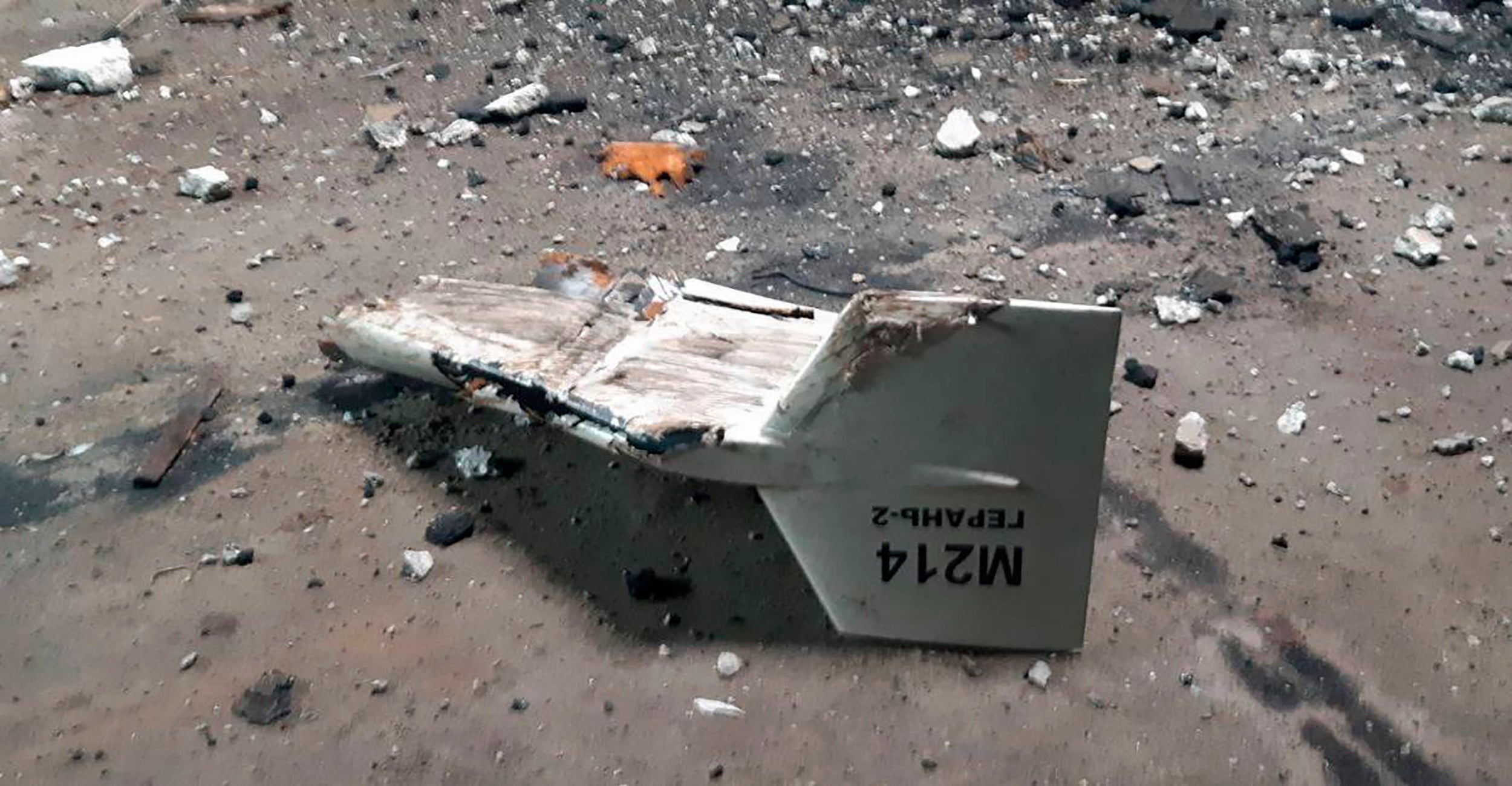Ukraine accuses Iran of violating UN ban on drone transfers
Ukraine is accusing Iran of violating a U.N. Security Council ban on the transfer of drones capable of flying 300 kilometers

Your support helps us to tell the story
From reproductive rights to climate change to Big Tech, The Independent is on the ground when the story is developing. Whether it's investigating the financials of Elon Musk's pro-Trump PAC or producing our latest documentary, 'The A Word', which shines a light on the American women fighting for reproductive rights, we know how important it is to parse out the facts from the messaging.
At such a critical moment in US history, we need reporters on the ground. Your donation allows us to keep sending journalists to speak to both sides of the story.
The Independent is trusted by Americans across the entire political spectrum. And unlike many other quality news outlets, we choose not to lock Americans out of our reporting and analysis with paywalls. We believe quality journalism should be available to everyone, paid for by those who can afford it.
Your support makes all the difference.Ukraine has accused Iran of violating a U.N. Security Council ban on the transfer of drones capable of flying 300 kilometers and invited U.N. experts to visit the country to inspect Iranian-origin drones being used by Russia against civilian targets.
A letter from Ukraine’s U.N. Ambassador Sergiy Kyslytsya to Secretary-General Antonio Guterres and members of the U.N. Security Council was obtained by The Associated Press ahead of a closed council meeting late Wednesday requested by Britain, France and the United States on Iran’s sale of hundreds of drones to Russia.
U.S. Deputy State Department spokesman Vedant Patel told reporters in Washington on Wednesday that the United States will join Britain and France in raising the issue at the council meeting.
Kyslytsya tweeted Wednesday that the issue of Iranian drones used against civilians and civilian infrastructure will also be raised at an open council meeting on Ukraine on Friday.
Russia is believed to have sent waves of Iranian-made Shahed drones into Ukraine to strike at power plants, residential buildings and other key infrastructure in Kyiv, the capital, and other cities.
Ukraine’s Western-reinforced air defenses have made it difficult for Russian warplanes to operate, and killer drones are a cheap weapon to seek out and destroy targets while spreading fear among troops and civilians.
“As we have seen over the course of the past months there is ample evidence that Russia is using UAVs from Iran in cruel and deliberate attacks against the people of Ukraine, including against civilians and critical civilian infrastructure,” Patel said. “We will convey these grave concerns about Russia’s acquisition of these UAVs from Iran in clear violation of U.N. Security Council (resolution) 2231.”
France’s U.N. Ambassador Nicolas De Riviere also told reporters Wednesday “it seems to be crystal clear" that Iran is violating the resolution.
Resolution 2231 was adopted by the U.N.’s most powerful body in 2015 to endorse the nuclear deal between Iran and six key nations -- the U.S., Russia, China, Britain, France and Germany -- aimed at curbing Tehran’s nuclear activities and preventing the country from developing a nuclear weapon.
Former U.S. president Donald Trump withdrew from the agreement known as the JCPOA in 2018 and negotiations between the Biden administration and Iran for the United States to rejoin the deal have stalled.
Under the resolution, a conventional arms embargo on Iran was in place until October 2020, but restrictions on missiles and related technologies last until October 2023 and Western diplomats say that includes the export and purchase of advanced military systems such as drones.
“It is our belief that these UAVs that are transferred from Iran to Russia and used by Russia in Ukraine are among the weapons that would remain embargoed under 2231,” Patel said on Monday.
Kyslytsya said in the letter that according to public information, “Mohajer- and Shahed-series unmanned aerial vehicles (UAV) were transferred from Iran to Russia” in late August, and “Ukraine assesses that this is likely part of Iran’s plans to export hundreds of UAVs to Russia.”
He said both UAV models meet the requirement to be banned because they are capable of a range equal to or greater than 300 kilometers. In addition, the Mohajer-series is manufactured by Qods Aviation, which is on the U.N. sanctions blacklist and subject to an asset freeze by all countries, he said.
The Ukrainian ambassador said no country submitted a request to the U.N. for approval of the shipment of UAVs.
“Therefore, the transfers from Iran to Russia should be considered as violations of (resolution) 2231,” Kyslytsya said.
He invited U.N. experts monitoring sanctions against Iran to visit Ukraine “at the earliest possible opportunity” to inspect the recovered drones, saying the government hopes the information will be “helpful” in the U.N.’s investigations into implementation of the resolution.
France's U.N. Ambassador Nicolas De Riviere said: “It seems to be crystal clear that servation was issued in 2021, endorsing the JCPOA.
___
Matthew Lee contributed to this report from Washington